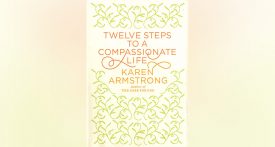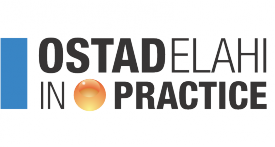Search results for tag "Practice" - 10 answer(s)
183
Vote
Many of you reacted to the first extract from Juliette’s experience and the case study based on it: Backbiting as a main dish? What do you think? So, did the situation involve backbiting? The poll results are unequivocal: yes! However, while 89% of you considered it was Juliette’s duty to defend her colleague (“yes” or “somewhat”), only 53% believed keeping quiet was not sufficient, and 11% that keeping quiet was a mistake. Meanwhile, a total of 35% considered that keeping quiet was sufficient (19%) or “already excellent” (6%). Most of you thus agree on the theory, but opinions are split as to how to best deal with this situation in practice—the diversity of the comments testify to it.
Indeed, many insisted on the necessity to take into account the context, the personality of the guests, one’s own personality, one’s rights and duties (what do we owe to whom?), etc. In short, none of this is simple and each situation is unique.
Read more
311
Vote
Karen Armstrong is a historian of religion and the founder of the Charter for Compassion that has had far-reaching worldwide impact since its inception in 2009. The charter defines compassion as that attitude which “compels us to work tirelessly to alleviate the suffering of our fellow creatures, to dethrone ourselves from the centre of our world and put another there, and to honour the inviolable sanctity of every single human being, treating everybody, without exception, with absolute justice, equity and respect.”
Read more
205
Vote
The recent survey about the assessment of the quality of an ethical and spiritual practice, which the practical curricula offered by OstadElahi inPractice call for, prompted numerous reactions, feedback from experience, as well as some questions. In the following article, Frédéric Perrault provides us with an enlightening analysis of the ideas expressed and invites us to continue the discussion.
The results of the recent survey about the the assessment of the quality of an ethical and spiritual practice are unequivocal. A large majority of us (70%) consider that the qualitative dimension of the assessment during phase 4 (Action) of OstadElahi inPractice labs was somewhat difficult, difficult, or very difficult to implement. Some even feel somewhat helpless in the face of this exercise, referring to a kind of dizziness, to how difficult it is to know if you are being too hard or too soft on yourself, to compare yourself to others, to bring back relevant memories, etc.
Read more
249
Vote
A high number of questions received by the OstadElahi inPractice website’s support team seem to suggest that assessing the quality of one’s ethical and spiritual practice is a difficult task. OstadElahi inPractice currently offers two online practical curricula: Toward an in vivo practice and Connecting with the Divine. Participants in those labs can regularly assess their practice of an ethical and spiritual exercise, which they have chosen after several reflection and analysis phases. They can record their daily self-assessment in this window by selecting “success” or “failure” (quantitative aspect) and by grading the quality of their practice on a scale of 0 to 10 (qualitative aspect), and they can use the dedicated text box for some notes or personal experiences
Read more
256
Vote
In a book about self-esteem, the French psychiatrist Christophe André cites a number of social psychology studies according to which, in any given field, most of us feel just a little bit superior to the average person. We feel a bit more skilled, a bit more intelligent, we think that we have better taste, etc. “Based on these studies taken as a whole, he writes, 67 to 96% of people overestimate themselves in comparison to their peers. And that phenomenon is fully subconscious…”
If this is true when it comes to professional skills or taste, it is also true, and perhaps even more so, when it comes to ethics. Indeed, while we may sometimes nurture an inferiority complex with regards to our looks, general knowledge or intelligence, we rarely have similar doubts with regards to our moral values.
Read more
225
Vote
 Human beings are endowed with free will. This exceptional distinction enables them to aspire to the ultimate goal for which they were created: Perfection. But such an aspiration requires that they make good use of their free will when they are facing choices in everyday life, with family, at work, etc. Anyone who wishes to pursue that spiritual goal should thus, at all times, ask themselves the following question: “how and to what avail will I use my free will?”
Will I use it to pursue my personal interests in a purely egotistical manner? My ego would then be in charge of my free will, and all my decisions would be made without regard to what is spiritually at stake in a given situation or to my true goal.
Or will I use my free will to fulfil my spiritual duty, that is, to practice ethics out of a sense of human duty and with the intention of divine satisfaction, in order to nourish my soul and to progress towards spiritual perfection? In this case, I am fully in charge of my choices, because when I make a decision I take into consideration the aspirations of my true Self, and I am aware of both the material and spiritual issues of the situation.
Read more
252
Vote
“What is prayer? What purpose does it serve? What is its role in the process of spiritual perfection? Under what conditions can one best benefit from prayer? This lab aims at helping you better understand the goal, the effects and the conditions of prayer, and make the practice of prayer part of your daily life.”
Here is the introductory description of the brand new lab hosted by the website OstadElahi inPractice, an organisational platform for the practice of ethics and spirituality that we introduced here when it launched in July. After a first general lab entitled Toward an in vivo practice, which you may have already tried out this summer, this second curriculum entitled Connecting with the Divine, introduces us to the essential role of prayer.
Read more
241
Vote
Read this anecdote submitted by one of e-ostadelahi’s readers, answer the two poll questions and share your comments!
Let us note at the outset that the point is not to reach an answer that would be “right” or “wrong” in the absolute sense. Reality is far too complex to be summarised in that way. While the anecdote reported here is real, the exercise is virtual. This poll is only meant to trigger reflexion and discussion.
Read more
394
Vote
In all areas, real progress requires theory to be repeatedly put into practice. Ethics and spirituality are no exceptions. As often pointed out on e-ostadelahi.com, it is only through practicing ethical and spiritual principles and thus assimilating them that we can transform ourselves. But it isn’t always easy to move from theory to practice. Motivation is key, of course, but a good method and appropriate tools are also needed. This is what inspired the creation of a new website with a focus on spiritual practice: OstadElahi-inPractice.com. We have had the chance to test it for you and, let us say it upfront, it has been a very successful experience!
Read more
236
Vote
Family life is filled with delights and annoyances that are felt particularly deeply within the couple itself. The hypothetical case study of “Jack and Kelly” offers an illustration that many of you have commented on. What if living together provided a sort of ethical laboratory for each of the partners? This is the idea proposed in the following text. In order to develop this hypothesis, the author of the article briefly recalls the conditions for a successful practice of ethical principles, as well as the operational modes of the imperious self according to Ostad Elahi. Then you will be invited to give further thought to the matter by taking part in a quick poll based on your own personal experience.
Read more
« Prev - Next »
|

 News
News Podcast
Podcast













Recent Comments